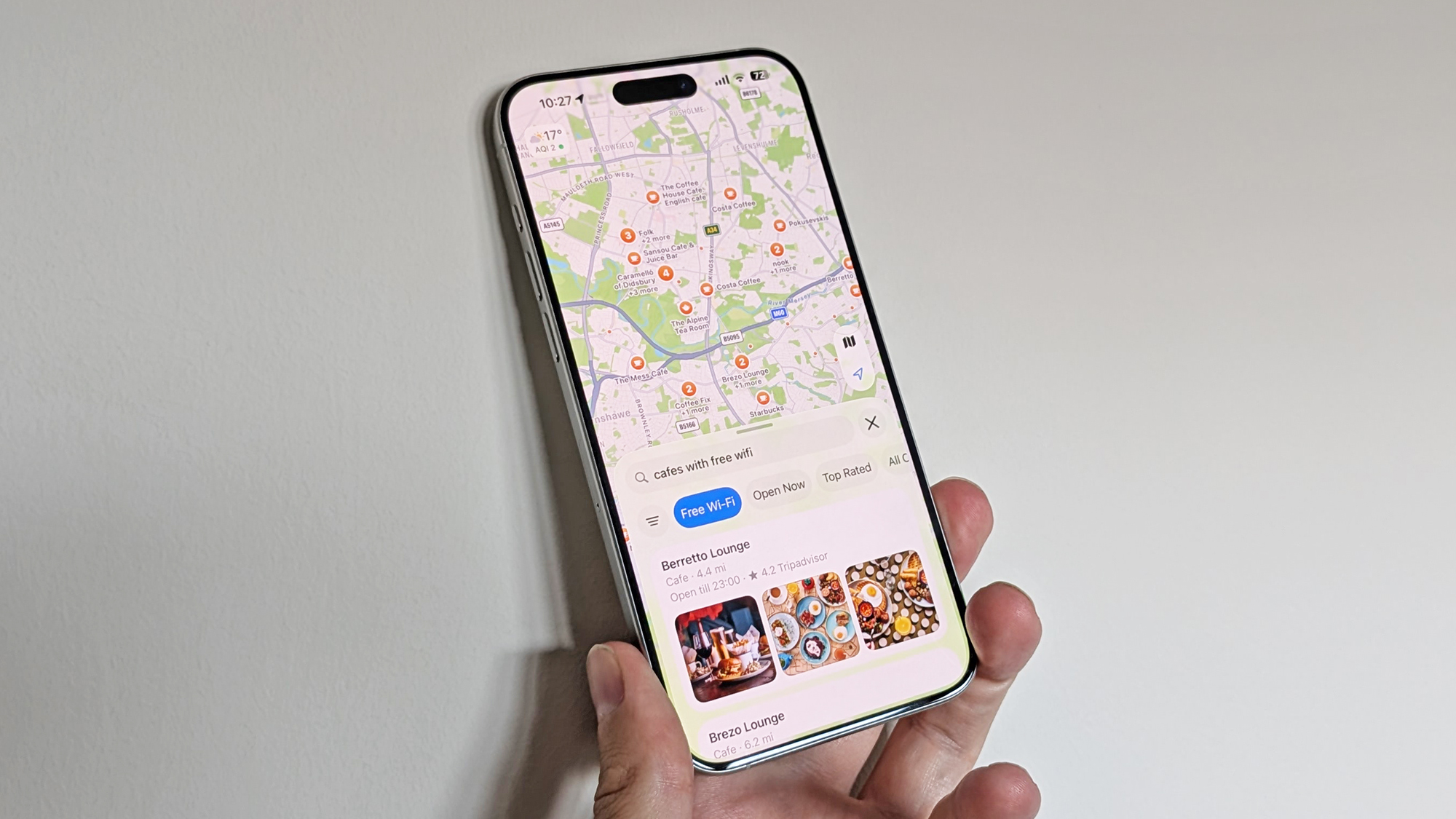- A new AI search feature has been spotted in Apple Maps
- It’s available in the latest iOS 26 developer beta
- A full rollout of the software is expected in September
As updated iOS 26 beta versions continue to roll out, we’re spotting new features in the software that Apple hasn’t officially announced: yesterday it was AirPod charging lights, and today it’s AI search in Apple Maps.
The team at 9to5Google has spotted that the search function in Apple Maps now encourages users to “search the way you talk” – so you might type out or speak out a search like “find cafes with free Wi-Fi” for example.
This is now live in the fifth developer beta version of iOS 26, so you won’t see it yet if you’re running the public beta. It might also get tweaked or even pulled before the final version of iOS 26 launches in September, though it seems likely that it’s here to stay.
It’s certainly an easier and more intuitive way to search for places, if you need to go beyond the basics and specify some additional criteria for your results – such as Wi-Fi access, food options, electric vehicle charging, wheelchair access, or whatever it is.
Apple Maps vs Google Maps
It’s possible that the new functionality has only gone live in the US for the time being, because after updating my iPhone to the iOS 26 developer beta 5, I was unable to get the natural language search feature to show up in Apple Maps here in the UK.
What I could do was run a similarly phrased search on Google Maps, and the results were somewhat patchy: it identified cafes without any problem, but it listed several that definitely do not offer free Wi-Fi (and I’ve been in them and asked).
It shows up a limitation in AI features such as these, which is that while the AI might be great at understanding what you’re asking for and converting your spoken words into text, it’s still relying on cold, hard maps data to get you accurate results.
In terms of raw data, Google Maps perhaps still has the edge over Apple Maps – but upgrades like this one in iOS 26 will mean Apple Maps becomes more appealing and useful, and may be enough to grab some users back from Google Maps.
Read the full article here















